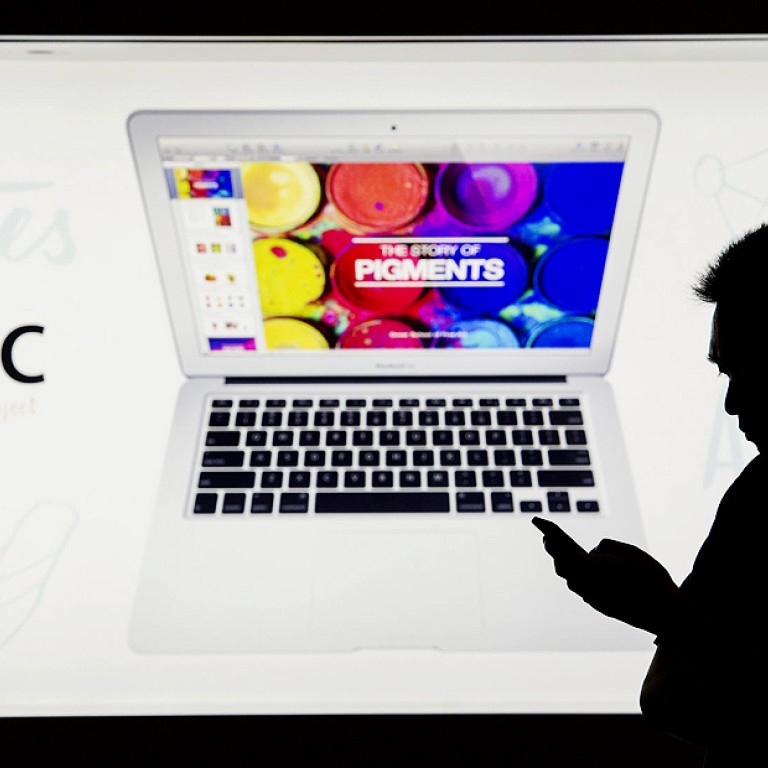
'Halo effect' from iPhone, iPad lifts Mac computer sales in China
Popularity of iPhone and iPad in China helps boost sales of Mac laptop and desktop products by 39 per cent despite sluggish computer market
Apple is seeing sharp growth in China for its Mac laptop and desktop products, boosted by the popularity of the iPhone and iPad, even though personal computer sales in this large market remain sluggish.

That made up 16 per cent of the technology giant's total revenue in the quarter, which rose 6 per cent to US$37.43 billion from US$35.32 billion the previous year.
"China, honestly, was surprising to us. We thought it would be strong, but it went well past what we thought," Apple chief executive Tim Cook told analysts on the company's earnings conference call.
Apple's distribution partnership with China Mobile, the world's largest wireless network operator by subscribers, apparently helped iPhone sales grow 48 per cent year on year in the three months to June, despite stiff competition from market leader Samsung Electronics and domestic brands led by Lenovo, Coolpad and Xiaomi.
Sales of the iPad jumped 51 per cent as it remained the leading media tablet in the market.
But it was the 39 per cent increase in MacBook and iMac sales in China which showed how far Apple has engaged more consumers on the back of demand for the iPhone and iPad. That is especially true on the mainland, the world's biggest market for personal computers.
Cook said the Mac line showed "some substantial strength" amid a slowdown in personal computer shipment growth in most markets worldwide. "China was projected to contract by 5 per cent," he said.
It is a development that augurs well for Apple's release this autumn of its upgraded Mac desktop operating system, called OS X Yosemite. "OS upgrades can have some impact on Apple's hardware shipments," said Bryan Ma, the vice-president for client devices research at IDC. "It's a longer-term process, partly fuelled by the halo effect from iPads and iPhones."
With Yosemite, Apple has made OS X work better with smart devices running the iOS mobile system. The new OS X "Continuity" features allow users to make and receive calls, as well as send and receive text messages on the Mac, which can activate the hotspot function on the iPhone. Users can write a draft on the iPhone, and pick up the same document - on the same page and on the same sentence - on the Mac or iPad.
Forrester Research senior analyst Gene Cao said: "After the launch of Yosemite, Mac computers and iOS devices will work together more closely, and this could help generate more sales." The beta version of OS X Yosemite will be released today, enabling consumers to review it before launch.
There is plenty of room for Apple to grow its Mac business in China, where it sold 1.8 million computers last year. IDC forecast the personal computer market in China to reach 65 million units this year.

